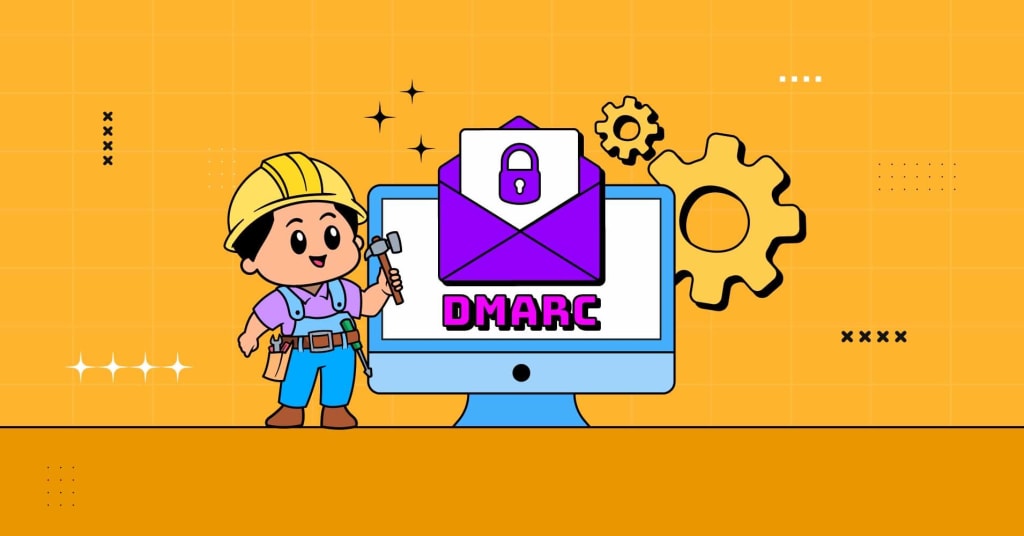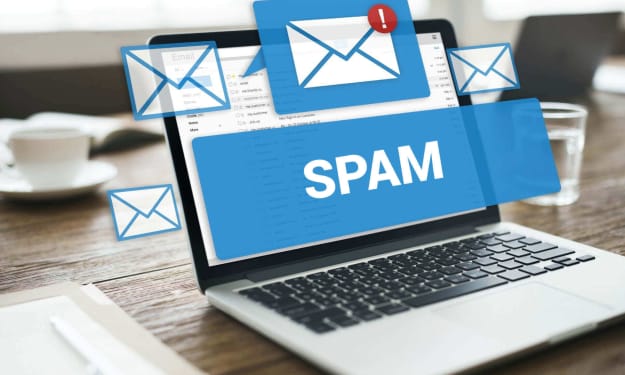What Is DMARC? How Does It Work?
Do you want to know what DMARC is? Read this article to learn what is it, and how it works.

DMARC, which stands for Domain-based Message Authentication, Reporting, and Conformance, is an email authentication protocol that is used to prevent email spoofing and phishing attacks. DMARC helps email senders and receivers ensure that the emails they send and receive are legitimate and not forged.
In this article, we'll take a closer look at what DMARC is, how it works, and why it's important.
Table of Contents
- What is DMARC?
- How DMARC works?
- DMARC Records
- Importance of DMARC
- Final words
What is DMARC?
DMARC is a technical standard that enables domain owners to protect their email domains from unauthorized use, commonly known as email spoofing. It builds on two existing email authentication protocols, Sender Policy Framework (SPF) and DomainKeys Identified Mail (DKIM), to provide a more robust email authentication solution.
The DMARC protocol allows email receivers to check that an email message is authorized by the domain that appears in the "From" address. DMARC also provides a mechanism for email senders to instruct email receivers on how to handle unauthenticated messages that claim to come from their domains.
How DMARC Works?
DMARC works by using both SPF and DKIM authentication protocols to check that an email message is legitimate. SPF checks the IP address of the email sender against the list of authorized IP addresses for that domain. DKIM, on the other hand, checks the email message's digital signature against the domain's public key.
If the SPF and DKIM authentication checks pass, the email receiver can be sure that the email message is authentic and was sent from an authorized sender. If one or both checks fail, the email receiver can either quarantine or reject the message, depending on the domain owner's DMARC policy.
DMARC Records
A DMARC record is a DNS record that contains information about the domain owner's DMARC policy. It tells email receivers how to handle unauthenticated messages that claim to come from the domain. DMARC records include several components:
- DMARC Policy: This component defines what action the email receiver should take if an email message fails SPF and/or DKIM authentication checks. DMARC policies can be set to "none," "quarantine," or "reject."
- "none" means the email receiver should take no action, but still report on the results of the DMARC checks.
- "quarantine" means the email receiver should treat the email message as suspicious and deliver it to the recipient's spam or junk folder.
- "reject" means the email receiver should reject the email message outright, and not deliver it to the recipient at all.
2. Reporting: This component defines how email receivers should report the results of DMARC checks to the domain owner. DMARC reports contain information about the number of emails that passed or failed DMARC checks, as well as details about the IP addresses of the email senders.
3. Subdomains: This component defines how DMARC policies should be applied to subdomains of the domain owner's domain. DMARC policies can be set to apply to all subdomains or specific subdomains.
Importance of DMARC
DMARC is important for several reasons:
- Protects Against Email Spoofing: DMARC helps to protect email domains from unauthorized use by verifying the authenticity of email messages. This protects users from phishing attacks and other types of email fraud.
- Improves email deliverability: DMARC helps to improve email deliverability by reducing the chances of legitimate email messages being marked as spam or blocked by email filters.
- Provides visibility: DMARC provides domain owners with visibility into how their email domains are being used and helps them identify potential email security issues.
- Builds Trust: DMARC helps to build trust between email senders and recipients by ensuring that email messages are authentic and not forged.
Final Words
DMARC is an essential tool for protecting email domains from unauthorized use and improving email deliverability. DMARC is also important for businesses and organizations that rely on email as a critical communication tool. It helps to protect their brand reputation and customer trust by ensuring that email messages are coming from legitimate sources.
In addition, DMARC can also help businesses and organizations comply with industry regulations and standards, such as GDPR and HIPAA. These regulations require organizations to protect sensitive information and prevent data breaches, which can be facilitated by email spoofing and phishing attacks.
About the Creator
Raymond McNatt
I've spent over 10 years honing my ability to captivate readers with my words. My specialization in email marketing and digital marketing niches has led to the publication of numerous articles, and essays, in various publications.






Comments
There are no comments for this story
Be the first to respond and start the conversation.